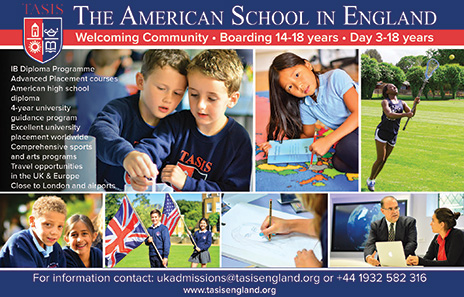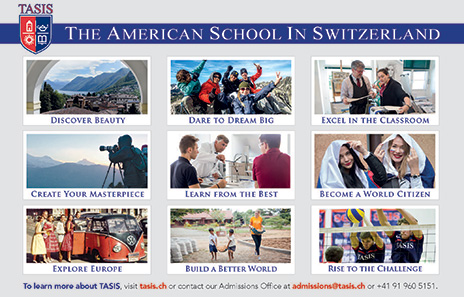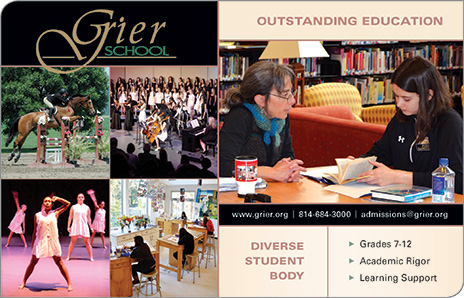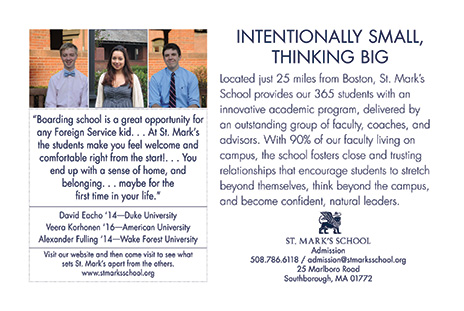Working with the U.S. Military: Let’s Take Full Advantage of Opportunities
The challenge for the State Department is not necessarily to reduce the role of the Department of Defense in foreign affairs, but to strengthen our own voice.
BY WANDA NESBITT
A National Defense University convocation ceremony in 2014.
U.S. Department of Defense
“War is the continuation of politics by other means.” This famous quote from the 19th-century Prussian General Carl von Clausewitz in On War (1832) is well known to officers throughout the U.S. military. My guess is that a smaller percentage of Foreign Service officers are familiar with it, although it is as relevant for us as it is for those in uniform. Why is it relevant? Because military force is one of several elements of national power that a nation can use to achieve its foreign policy goals. (Others include economics and trade; information and public diplomacy; negotiation and foreign aid.)
As we mull over and debate the “militarization of foreign policy,” it may be useful to remember that our best statesmen and diplomats did not shy away from the military but were well versed in the use of force—and could persuasively articulate when its use was appropriate and when it was not. Ambassador (ret.) Ron Neumann immediately comes to mind as someone who excelled at this.
Now president of the American Academy of Diplomacy, Amb. Neumann served as chief of mission in Afghanistan from 2005 to 2007, working closely with the U.S. military on cooperation between Afghanistan and Pakistan at a particularly sensitive time. He also advocated for change in how the U.S. government conducts foreign policy in fragile states, arguing that the role of ambassadors should be strengthened in conflict states in “Fixing Fragile States” (co-authored with retired Admirals Dennis Blair and Eric Olson, and published in the Sept.- Oct. 2014 edition of The National Interest).
In today’s world, where the desire for immediate solutions to complex yet frightening developments (e.g., the spread of the Islamic State group) is so strong, it is not hard to understand the temptation to focus on the use of force, despite widespread recognition that force alone will not solve the problem. In my view, the challenge for State is not necessarily to weaken or reduce the role of the Department of Defense, but to strengthen our voice and ensure that our expertise is recognized as equally valid. One of the things we need to do to reach that goal is encourage more officers to develop a deep understanding of the military, and then to utilize those officers effectively.
State Goes to School
Multiple opportunities for State personnel to study or work alongside DOD personnel already exist, but as an institution we often do not make the most of those opportunities or capitalize on the skills, abilities and insights that our officers gain from spending a year in a military environment. Let’s look, for instance, at the National Defense University, with which I have recent, firsthand experience, having served as its senior vice president from October 2013 to July 2016.
NDU is unique, even within Defense. It is sometimes referred to as “The Chairman’s University” because it operates under the guidance of the Chairman of the Joint Chiefs of Staff (CJCS) and is required to have all the military services represented in roughly equal numbers. This is especially valuable for State Department personnel assigned to NDU, because it means that one is exposed to all of the different service cultures as opposed to just one dominant culture as would be the case, for instance, at the Army War College or the Naval War College.
We can only guess at how many disagreements between State and DOD never reached a crisis level because the people involved understood each other’s cultures.
NDU also hosts 90 to 100 foreign military officers each year, many of whom go on to become service chiefs and ministers of defense. Officers from USAID, the intelligence community, Department of Homeland Security, Commerce and several other agencies also comprise the student body. The result is an incredibly diverse environment that exposes students to multiple agency and international perspectives. The students, all of whom are mid-career professionals, are encouraged to broaden their horizons, challenge their assumptions and build new networks. The yearlong master’s degree programs offered by each of NDU’s five colleges represent “joint” education in the broadest sense.
NDU also offers the largest number of opportunities for State personnel at the FS-1/GS-15 level to get training outside of the department, although “education” is a more appropriate term. The distinction is compelling and was explained to me this way: Training involves teaching someone how to do a specific task or carry out a clearly defined role or mission, whereas education broadens knowledge and thinking. While I was there, the NDU provost often said: “We don’t teach people what to think; we teach them how to think.” NDU prides itself on producing strategic thinkers: a few of its well-known graduates include former Chairman of the Joint Chiefs of Staff and Secretary of State Colin Powell, former National Security Advisor Brent Scowcroft and Martin Dempsey, who retired as chairman of the Joint Chiefs of Staff in 2016.
State’s presence at each of NDU’s five colleges is significant. On average, the State Department sends 20-25 officers to the National War College and an equal number to the Eisenhower School (formerly the Industrial College of the Armed Forces) each year. A much smaller number (2-3) go to the College of International Security Affairs, which focuses on counterterrorism, and to the Joint Forces Staff College in Norfolk, Virginia. In addition to students, State has faculty slots in each school and holds the number-two leadership position at the University, the National War College, the Eisenhower School and CISA. Altogether, the State contingent at NDU easily numbers 60-70 per year.
Making the Most of the Investment
State personnel benefit tremendously from this experience. Classroom discussions offer an opportunity to explore issues (e.g., how to diminish the influence of the Islamic State group) from a new perspective and to hear what others—especially military officers—think about these challenges. Personal interactions outside of class provide an opportunity to get to know people our officers might otherwise never come across and to build relationships that often prove to be invaluable later down the line. (If you are interested in bidding on a year at NDU, look for 17 State 41364, Long-Term Training Opportunities, which gives details on how to apply.)
There are countless stories of FSOs who graduated from NDU— whether from the National War College, the Eisenhower School or another component—and encountered a classmate five to 10 years later in an interagency setting. In almost every case, their shared experience as NDU students facilitated discussion and made it easier to resolve issues. We can only guess at how many disagreements between State and DOD never reached a crisis level because the people involved understood each other’s cultures and were able to work out their differences.
Creative thinking and a more strategic approach to how we fill certain assignments could put us on a stronger footing in terms of the relationship with DOD.
A year at NDU represents a substantial investment by the State Department in officers expected to go on to leadership roles. So it is almost astounding that we do not make a concerted effort to reap the benefits of this investment by ensuring that the knowledge and experience our students acquire is utilized in a deliberate manner. Long overdue improvements to the selection process for senior training have been made recently, but more could be done. One idea involves setting aside a small number of slots, perhaps two per year, for officers willing to commit to focus on political-military issues or take an important assignment as a foreign policy adviser (known as a POLAD) to a military service chief or commander.
I met with State FSO students every year while at NDU and found them frustrated that our personnel system seemed incapable of finding a way to recognize the added value they bring out of the assignment. Linked assignments are probably a bridge too far, but steps forward could include equating a year at institutions like NDU to interagency experience and requiring the deputy chief of mission and principal officer selection committee to give candidates with this experience higher consideration for posts with a large U.S. military presence. Over time, this might encourage new norms, such as an expectation that service school graduates will be more competitive for positions that have a significant political-military component.
Creative thinking and a more strategic approach to how we fill certain assignments could put us on a stronger footing in terms of the relationship with DOD. This would absolutely require a commitment from the seventh floor, and not just from the Director General’s office. It might be difficult and controversial, but conscious change is needed if we are to make the most of opportunities that already exist.
What We Can Teach the Military
Another factor that we pay insufficient attention to is the degree to which we can positively influence our military colleagues' perceptions of the State Department and the Foreign Service. While it is critical to have individual FSOs benefit from joint and interagency programs, the goodwill that State as an institution derives from those interactions should also not be underestimated. I was surprised that many of the military officers I met at NDU knew very little about the State Department, and found that many of my FSO colleagues had exactly the same impression.
What I found, however, was that the more military officers came to know and understand us, the more likely they were to respect and value the role we play. Having senior officers assigned to NDU is valuable, and our contributions can make a significant difference. For example, we often invited officials from State to speak to students about a particular policy issue, and those sessions can be extremely beneficial to the military officers. Nevertheless, State often fails to take full advantage of opportunities that are practically on our doorstep.
One way State can counteract the “militarization of foreign policy” is to re-examine how we motivate Foreign Service personnel to better understand the military and how we utilize officers who already possess that understanding.
NDU is a 20-minute drive from Main State (when traffic isn’t lousy), yet it is remarkably difficult to get senior State officials to speak there. In the absence of a senior representative, for example, I routinely stepped in to talk to officers in the CAPSTONE course about chief-of-mission authority and how our embassies abroad operate successfully. Useful—but perhaps not the best use of an opportunity to influence the next generation of DOD leaders. For readers not familiar with it, CAPSTONE is a mandatory, six-week course for newly promoted flag rank officers (OC-equivalent).
In keeping with NDU’s joint education mandate, each class includes a roughly equal representation of officers from the Army, Navy, Air Force and Marine Corps, and a handful of civilian counterparts. From a strategic perspective, however, the CAPSTONE program is unique in that these classes represent the future of the U.S. military. The men and women in this program will one day be combatant commanders, filling critical positions at DOD and on the Joint Staff. In CAPSTONE they routinely hear from the top military brass, the chairman of the Joint Chiefs of Staff, agency heads or their deputies and well-known figures in the intelligence community. Yet it was a rarity for anyone from our seventh floor to address this group. The reasons are understandable: packed schedules, long-planned visits from foreign dignitaries, competing speaking engagements, etc. Nonetheless, State could and should use this opportunity to influence the next generation of senior military leaders to much greater effect.
The CAPSTONE course is held four times each year; we should give much more attention to the messages we want to send this group. Building relationships and encouraging officers to bond with a new cohort of peers at the senior ranks is one of the goals of CAPSTONE. State could send an officer to every CAPSTONE class, but we haven’t done so for several years because the course is not free. And the cost is significant: $12,000 to $13,000 for six weeks. The long-term benefits, however, could be quite substantial if we view CAPSTONE as an opportunity for State to develop a contingent of officers who can build and sustain relationships with DOD. Participants would have to be carefully selected, ideally with a focus on likely future assignments. Giving the opportunity to attend CAPSTONE to somebody who might one day become a deputy assistant secretary in the Bureau of Political and Military Affairs or a POLAD to the CENTCOM commander might be well worth the investment.
The Way Forward
In sum, multiple opportunities already exist for the State Department to deepen personal relationships with U.S. military officers and strengthen institutional links with DOD. Academic settings such as NDU offer one vehicle for doing so and also provide opportunities for State to influence the thinking of future military leaders. Making maximum use of these opportunities is a challenge that will require a sustained commitment from the highest levels of the State Department.
But one way State can counteract the “militarization of foreign policy” is to reexamine in a rigorous and honest manner how we motivate Foreign Service personnel to better understand the military, how we utilize officers who already possess that understanding and how we can take full advantage of opportunities—such as the ones at NDU—to demonstrate that a multifaceted approach to achieving U.S. foreign policy goals is far better than one that relies too heavily on just one of the tools in the box.











